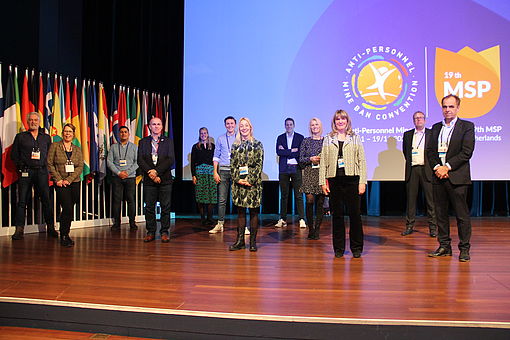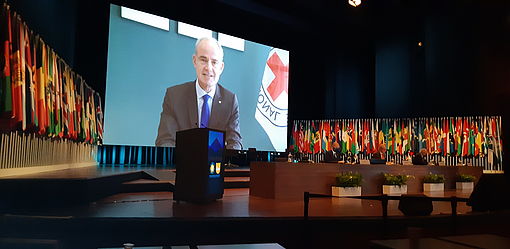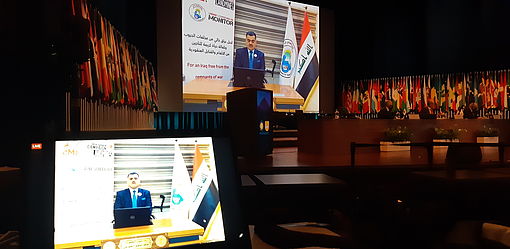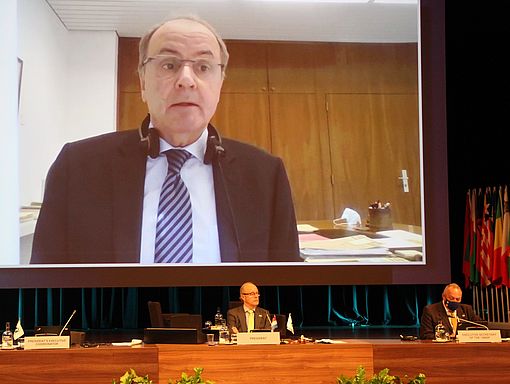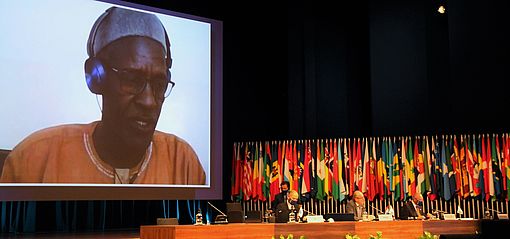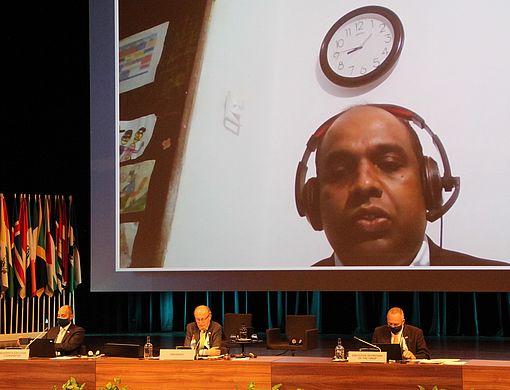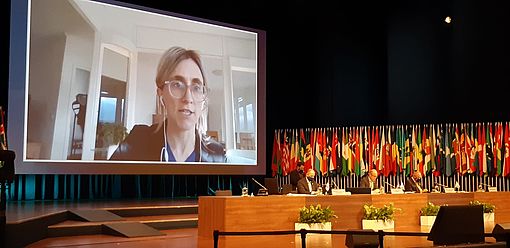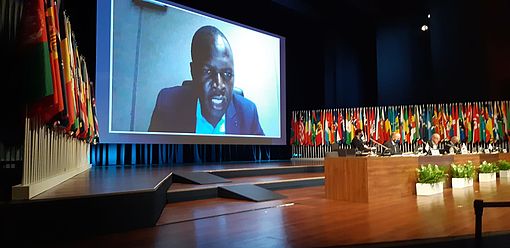For information purposes only; not an official document
Bogota, Geneva, The Hague – The Netherlands has concluded a week of work leading the Nineteenth Meeting of the States Parties to the Convention on the Prohibition of the Use, Stockpiling, Production, and Transfer of Anti-Personnel Mines, under the chairmanship of H.E. Robbert Jan Gabrielse, Permanent Representative of the Netherlands to the Geneva Conference on Disarmament.
Over 500 delegates representing 101 States (89 Parties, 12 not party) and over 20 international and non-governmental organisations, registered to attend, 34% of them women. In a sudden change, the conference had to be held virtually, 15-19 November, from The Hague due to an unexpected rise of Covid-19 cases in the Netherlands.
“During this week we heard from implementing and donor countries and their partners in the field providing general consensus that this landmark instrument is resilient, but that this cohesive machinery is being tested due to shortage in funding and new contamination in countries which had already declared completion of their mine clearance commitments,” said the Convention President as he concluded his mandate. “Only national ownership, compliance, transparency, sustained funding, and growth of the Convention membership can reverse this worrying trend”, concluded the Ambassador.


